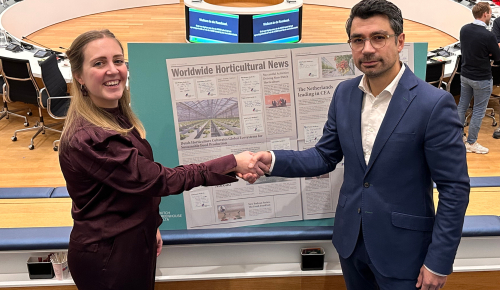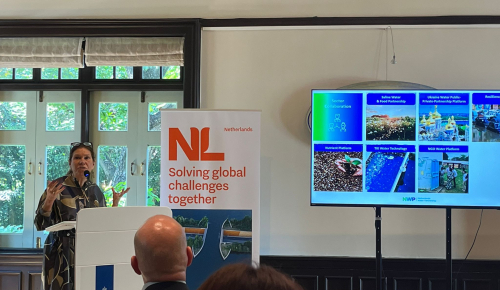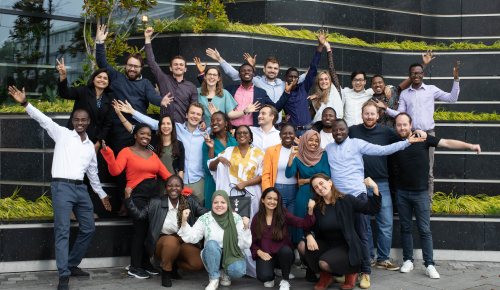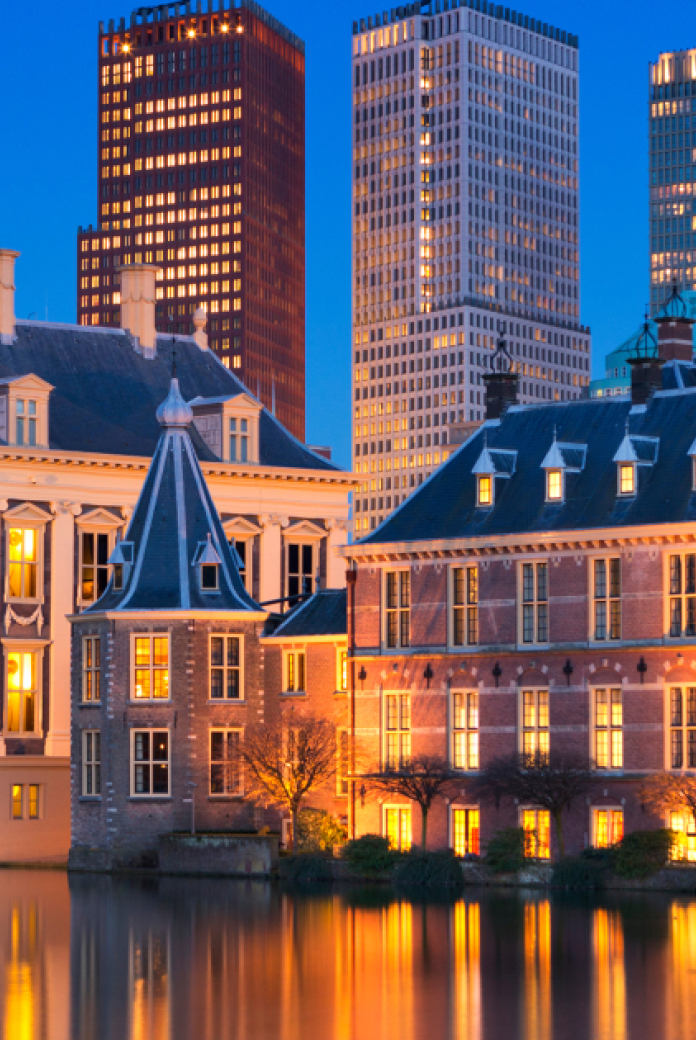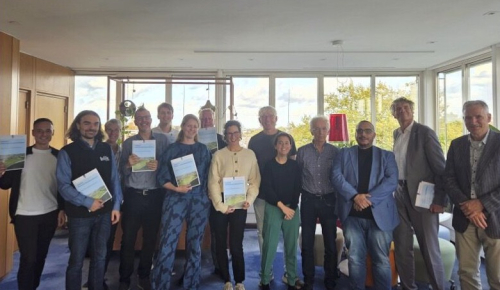Blog
8 December 2017Blog: Investment in the relationship with Egypt is bearing fruit
The Water Panel has been at the heart of the water relationship between the Netherlands and Egypt for many years. The Ministry of Foreign Affairs and the Ministry of Infrastructure and Water Management are represented on the panel, as are their Egyptian counterparts. NWP provides the secretarial staff, and NWP chair Sybe Schaap is also a member of the panel. This week, the panel came together in The Hague.
Memorandum of Understanding
Job Kleijn is the Egypt Delta team coordinator at the Ministry of Foreign Affairs. In his blog, he outlines both what has already been achieved and the prospects for the Dutch sector in the near future. "The water relationship was founded on the Memorandum of Understanding signed three years ago by both countries. At the heart of this memorandum are challenges in the delta regarding waste water management, water and agriculture, the protection of Egypt’s northern coastline and climate change adaptation. Yesterday, we discussed what has been achieved since our last meeting, which took place in Alexandria in January, and the issues we want to tackle before the next meeting. Egypt is one of the delta countries working with the Netherlands in the area of water. It is also the only delta country with this kind of panel at a ministerial level. Our primary goal is to have a good, constructive dialogue, and to get to the heart of key developments at a strategic level."
Site visits
"We only have half a day together, so we really have to get straight to the point. Egypt wants to find good examples: what has made it possible for the Netherlands to carry out large-scale infrastructural projects, such as a second Maasvlakte or the development of the polders? What were the conditions and factors for success for a coordinated strategy and centralised control? The panel is part of our investment in the relationship, which is putting the Dutch sector on the map in terms of tenders. We are also planning business visits, which have proved very worthwhile. A few weeks ago, we led another Egyptian delegation on visits to sites such as Deltares, during a study tour focused on integrated coastal management. They also visited Katwijk and Noordwijk, where the parking garages that are necessary for tourism and recreation have been incorporated into coastal protection measures. The Egyptians now intend to incorporate those aspects into their own plans."
Funding
"An important feat we have achieved this year is to secure €31.4 million of financing from the Green Climate Fund for integrated coastal management. Dutch experts were consulted during the drafting phase of the proposal, and they led the submission of the application. For instance, the philosophy of 'Room for the River' (Ruimte voor de Rivier) was incorporated into the procedure. This placed Dutch actors in a good position when the first tenders were released early 2018. Another achievement is the founding of a programme to combat the risk of Alexandria being flooded following extreme rainfall, an achievement that was made possible with financial support from the Sustainable Water Fund (Fonds Duurzaam Water)."
Presidential consent
"Yet another development involved Port Said, another area where the effects of climate change are a challenge, but where the city’s administrators are keen to embark on a significant expansion. Again, the topic of resilient cities is relevant here. A Dutch expert has set up a plan that allows for financing to be raised from the sale of land. The minister responsible is enthusiastic, but an operation of this magnitude needs the consent of the president. Once the president gives the project the green light, the next step will be a pre-feasibility study. In cooperation with the Egyptians, we are seeking opportunities to collaborate with international financing institutions such as the European Bank for Reconstruction and Development (EBRD). Where necessary to keep the project development process in motion, we would then have the option of drawing on Dutch funds."
Water issues
"As well as coastal protection efforts, we are also concerned with sanitation and waste water. We have received a request to conduct a study into the most desirable policy to cover silt processing; there is currently a lack of policy in this area. Finally, there’s the issue of water productivity and water accounting. Water is an increasingly scarce resource in Egypt, partly thanks to the large dam in Ethiopia; the sector that consumes the most water is agriculture. Egypt has asked the Netherlands to start up a water accounting unit within the relevant Egyptian ministry, to use satellite data to monitor efficient water usage in agriculture. This will provide evidence-based data to ensure that Egypt can use every drop of water to the maximum. The Netherlands is a world leader in this field of knowledge. The EU is working on a large-scale project for water accounting and water productivity in Egypt that can be rolled out across the region; there is a tendering process in the pipeline. Because we have already been active in this area for some time, the Dutch sector will be in a great position going into that process."
Politics
"Admittedly, the political situation in Egypt has its up and downs, but Egypt is a pivotal country in the region and it is very important that we maintain a dialogue. Our positive water relationship has laid a sound foundation for that dialogue: we have already been able to gauge each other using that avenue, and that lays the groundwork to discuss other (political and economic) issues."
More information
If you would like to know more about Egypt, you can read about the latest developments in the country update or get in touch with Daniël van Dijk or Sabrina Doetjes. NWP for Egypt carries out its activities in association with the Partners for Water programme.
